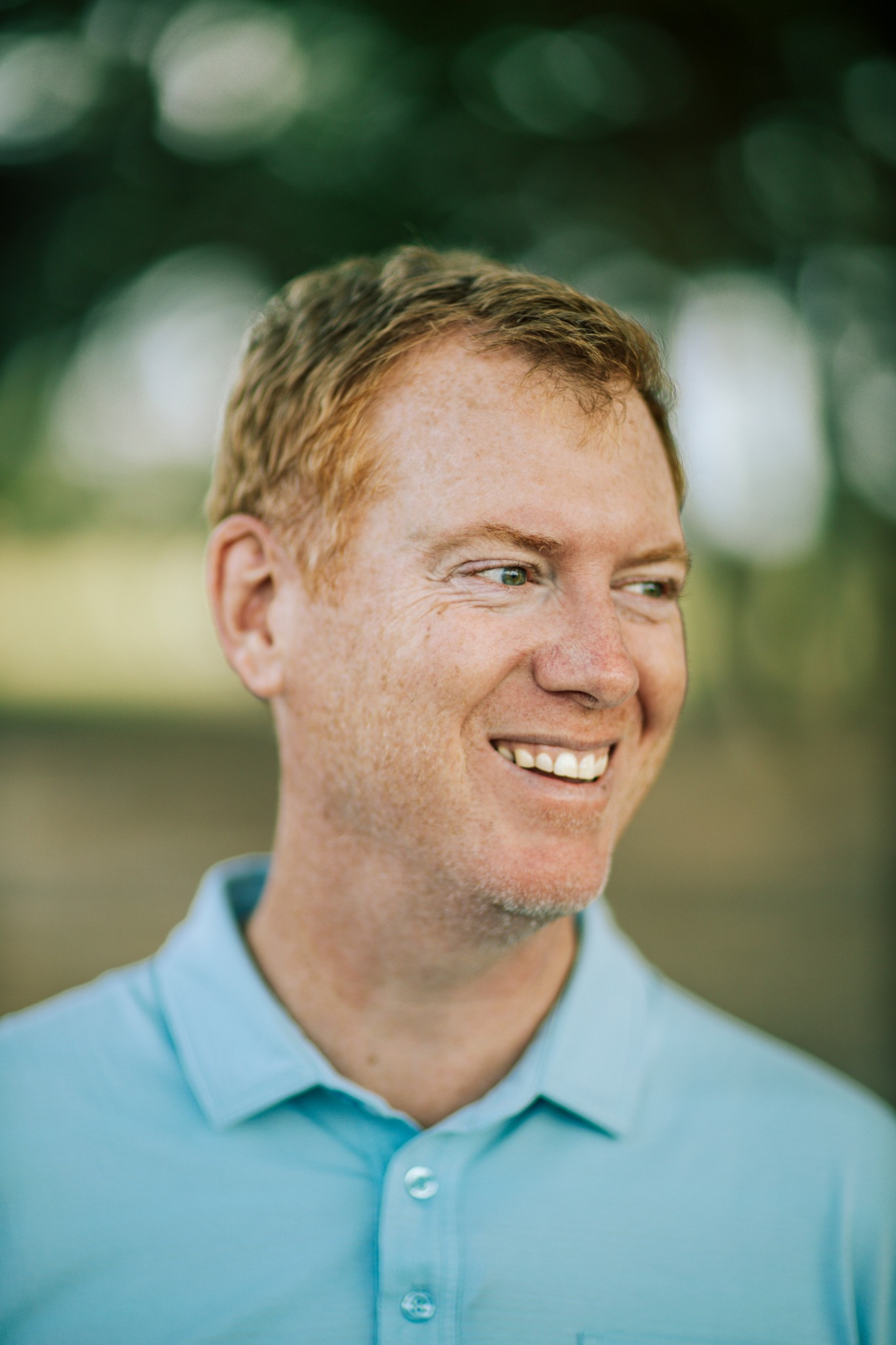We recently connected with Tom Coyne and have shared our conversation below.
Tom, appreciate you joining us today. Earning a full time living from one’s creative career can be incredibly difficult. Have you been able to do so and if so, can you share some of the key parts of your journey and any important advice or lessons that might help creatives who haven’t been able to yet?
I never expected to make a living as a writer, and in some ways, I don’t. I’ve written six books with a few bestsellers in the mix, but I don’t crank them out every year, and if you space out that book income over the course of a career, it doesn’t necessarily support a family of four with college for our kids on the horizon. The key to earning a living is in the hustle and the pursuit of opportunities that come away from writing but that have grown out of the books. I write about golf and the interesting places it is played, so that has allowed me to get into the golf tour business, and I’m now working in golf course design as well. The books have led me to a full-time position as the editor of The Golfer’s Journal, and I do a fair amount of paid speaking about my books and adventures. I also own a golf course now, which has been an unexpected but rewarding endeavor–I wouldn’t say it adds to me making a living, but it has certainly enhanced our lives. The bottom line is that writing books on a certain subject has gained me in expertise in that field that can open up other opportunities related to that field. In short, I wear a lot of hats, but they’ve all come from the stories I’ve been fortunate to publish, and those stories–my books–remain the priority of my working and creative life.

Great, appreciate you sharing that with us. Before we ask you to share more of your insights, can you take a moment to introduce yourself and how you got to where you are today to our readers.
I’m an accidental golf writer. I wrote a novel when I was in a graduate writing program about caddies. I’d grown up around golf and had been a caddie since I was a kid, so a golf story made sense and the adage about writing what you know was certainly true in my case. I was 24 and just out of school with a manuscript and no money and no real idea of what to do, other than hustle and pursue every lead I had in the publishing world. Within a year I had an agent and a book deal, and the book was going to be turned into a movie (A Gentleman’s Game, with Gary Sinise). I was incredibly fortunate to find the right agent to shepherd me along, and to tap into a passionate audience. I don’t think every sport lends itself to book sales, but golfers buy books and it has been a happy accident that I was able to combine the only two things I knew much about: writing and golf. After publishing that novel, I went on to write memoir style nonfiction books where I’d go out and live a golf dream or take on some unreasonable golf quest. In Paper Tiger, I played golf 542 days in a row in a quest to turn professional (won’t spoil that ending, but you’ll notice I’m responding as an author here, not a pro golfer). I walked the coastline of Ireland for four months with clubs on my back and played every golf hole that got in my way — that book was A Course Called Ireland and was my first bestseller. I did something similar but different in Scotland, then in America where I played golf in all 50 states. The stories are much more about people and places then they are about golf, but golf gives you a great backdrop for storytelling where there’s something at stake and a lot of curious obsession involved. And it takes you to compelling places. The next book comes out in May 2025 and is about my detour into accidental golf course ownership. Every golfer dreams of owning their own golf course. Well, that somehow happened for me, and it has been an even wilder adventure than walking the perimeter of Ireland, though it has been gentler on my feet.

For you, what’s the most rewarding aspect of being a creative?
The best part of what I get to do is the people with whom I get to connect. Writing is generally a very solitary adventure, but when you meet or hear from someone who has genuinely connected with your experience or your way of expressing yourself, it’s a pretty powerful experience. I’m something of an extroverted introverted and I don’t do well with praise, but because of social media and email, I’ve become quite accessible and perhaps slightly recognizable in my small corner of the sports writing world, and meeting people in that world who genuinely care about something I’ve written or who have taken some inspiration from it–it’s an overwhelming thing, really. You write something and hope it isn’t awful and send it out into the world to have its own life, and when its met there with kindness and appreciation and even some joy (not by all, but by some), you really do feel grateful and fortunate for this strange life you get to call your job. When you hear from someone who tells you that a book helped them through a tough time or improved their outlook on something or helped them choose a different, better path…it’s humbling. And at the end of the day, I deserve little of that credit. All credit to the readers who take the time to sit down with my meandering and invest their time and interest. Those are precious commodities, today more than ever, so I work as hard as I can to honor that investment.

Do you think there is something that non-creatives might struggle to understand about your journey as a creative? Maybe you can shed some light?
I know that my job falls under the category of creative, but I don’t think there really is such a thing as non-creatives. We all create something every day, with the way we live, the way we present ourselves, the stories we tell, the way we work and treat other people. We all see and experience the world in our own unique way; some of us are fortunate to spend more time than others dwelling upon and trying to capture what that is, which I suppose is what qualifies me as a creative, in that I get to poke around at questions that in other lines of work might be seen as an indulgent waste of time. The thing that people who don’t write might not understand about the writing life is that, first, yes it is a living and a vocation. When you tell someone you’re a writer there is that assumption that it’s your hobby and that you have a “real job” to feed yourself. When I’m on a book, I’m hitting these keys for 12 hours a day. Feels like a real job to me. The other is that being a writer doesn’t happen by some sort of magic or mystery; it feels like a very inaccessible thing, I think, and I thought that way myself when I was a student dreaming of maybe having a book on a shelf somewhere someday. Truth is, it’s work. It’s time. It’s effort. I suppose there are some skills involved that don’t feel natural for everyone, but such is the case with any line of work. I show up, put in the hours, and feel good when I have. I wish it were a more glamorous thing, where you were struck by the bolt of inspiration, sat down and cranked out your manuscript, then hit send and basked in the glow of adoration and royalties. That certainly hasn’t been my experience. You write everyday, you write when you don’t want to, and you rewrite until you can’t stand to look at your pages anymore. That doesn’t mean it isn’t fun–you have to love it and there is deep satisfaction in reading something you don’t think. you can make any better. But I don’t think calling oneself a writer has much to do with money. It has to do with it being central to your life. I don’t feel like myself if I’m not working on something. And no matter what your job is, if you feel the same way, you’ve probably landed at your calling.
Contact Info:
- Website: www,tomcoyne.com
- Instagram: @coynewriter
- Facebook: https://www.facebook.com/coynewriter/
- Linkedin: https://www.linkedin.com/in/tom-coyne-295a11/
- Twitter: @coynewriter
- Youtube: https://www.youtube.com/channel/UCjZuctOW26mgYBMgW0uRvdA
- Other: https://www.golfersjournal.com/




